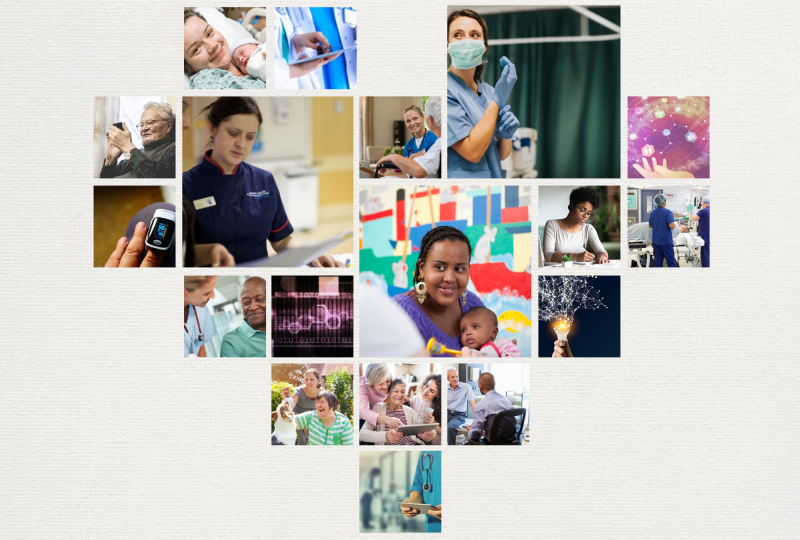
Natasha Swinscoe, Chief Executive of the West of England AHSN, looks back on the last 12 months.
As I reflect on the year that was 2020, two quotes spring to mind, from very different sources.
Firstly there are Michelle Obama’s motivational words:
“You should never view your challenges as a disadvantage. Instead, it’s important for you to understand that your experience facing and overcoming adversity is actually one of your biggest advantages.”
It’s with enormous pride and admiration that I look back on the work of our local health and care system over the last year and can see so many examples of how we’ve done exactly this. As an AHSN, our local network was ideally placed to act quickly to provide support to the system where it was most needed, bringing people together with the right skills and experience to collectively shoulder many of the challenges presented by the COVID-19 pandemic.
We were able to ‘turn on a sixpence’, pausing some programmes, adapting and accelerating others and tailoring a completely new set of COVID-19-specific offers to our member organisations for immediate delivery.
Partnering with Wessex and South West AHSNs, we supported 570 primary care practices across the NHS South West region to rapidly implement and then optimise the use of online and video consultation tools, and we are now scaling up use of remote monitoring technologies to support vulnerable residents and those who live with frailty.
Our regional focus on safer care for deteriorating patients has come into its own. We’ve identified and accelerated some of our most relevant work, in particular around RESTORE2, ReSPECT and NEWS2, turning our popular training programmes virtual and offering to all care homes in the West of England, including those for people with learning disabilities, domiciliary care and supported living providers. Our teams are now working with health and care colleagues to rapidly roll out the COVID Oximetry @home pathway, and have recently hosted a couple of webinars enabling colleagues to share learning and solutions.
We have also been working with our innovator community to identify products that could help in the COVID response. For example, we supported a pilot project with Wiltshire Health and Care to use KiActiv® Health, a mobile and web-based app, to support respiratory patients as an alternative to face-to-face pulmonary rehabilitation during the pandemic
Other parts of our work have had to adapt to changed circumstances. We managed to launch our perinatal care bundle PERIPrem to all neonatal units across the West and South West without actually being able to visit them. We moved all of our West of England Academy courses online and our Summer QI programme was a sell-out. We’ve paused, adapted and pressed on with programmes like PreciSSIon and SharED, and are seeing them make real, measurable differences to the outcomes for patients and users. This is all testament to the passion and commitment of our regional health and care teams to continue the good work we’d started despite the challenges presented by the pandemic.
We’ve often had to draw out the essence of our programmes, to refine, reflect and sometimes reorient our work. A stretched system, populated by staff working at the limits might not sound like the ideal change environment, but we’ve found the appetite to improve has remained. We have felt an increased demand for our work, and were honoured to be nominated for awards for our PReCePT and ReSPECT programmes, as well for the clinical leadership of Anne Pullyblank, our Clinical Director.
Whilst working to meet the increase in demand we are also reflecting on what we’ve learnt about change and innovation over the last year, and how we can use that to continually improve our work. This leads me to the second, far pithier quote from Benjamin Disraeli:
“There is no education like adversity.”
Adversity has been a common theme this year, but I have been amazed at the appetite to continue to learn and improve in the face of it. All of this activity has only been possible as a result of being part of an engaged and dedicated health and care community. So most of all I want to say thank you.
Thank you to all the individuals and organisations that together comprise the West of England Academic Health Science Network family; to our team of staff who have embraced remote working and our new virtual world; thank you to the innovators and researchers for your new ideas and insights.
Thank you for what you’ve achieved in the last year. Thank you for collaborating with us to rapidly introduce new ways of doing things in response to COVID. And thank you for your energy and commitment in helping us to continue other areas of work that could so easily have been ‘one thing too many’ during the pandemic. I hope you get some time over the coming weeks to pause and reflect on all we’ve achieved together.
I’ve always been proud of our Network’s system-wide, inclusive approach, building supportive relationships with all those in our region who need and want to contribute. I’ve never been more proud as I am now looking back at what we’ve achieved together this year, and I very much look forward to continuing this work in 2021.
Posted on December 8, 2020 by Natasha Swinscoe, Chief Executive, West of England AHSN


